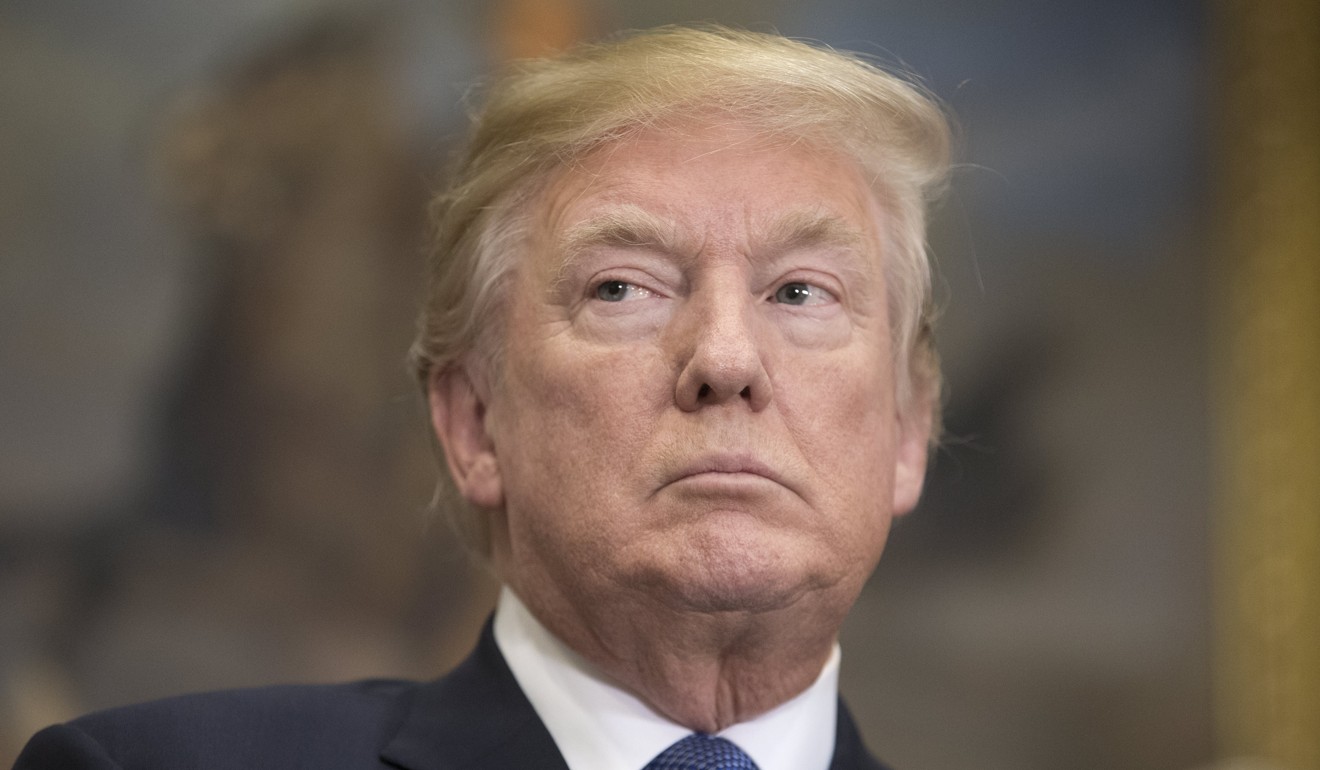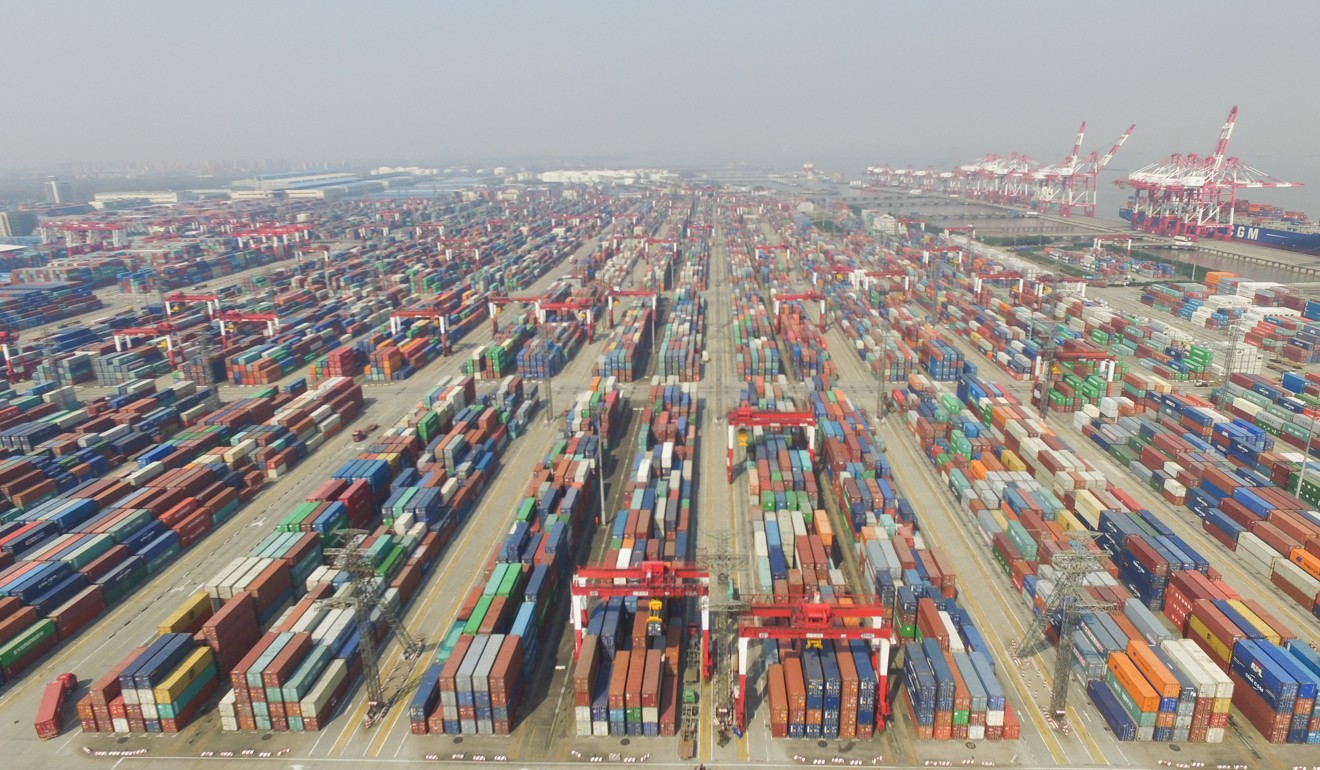
This year’s Davos meeting could be the pivot for global trade
President Donald Trump could be about to put ‘flesh on the bones’ of what his America First policy is all about
If Davos 2017 was Xi Jinping’s canvas, so the wintry backdrop of the World Economic Forum in 2018 is surely set for Donald Trump. It has a feel of William Shakespeare’s “Julius Caesar” about it: “I come to bury Caesar, not to praise him.”
After months of bluff and bluster, posturing and braggartry, it seems that Trump, with henchman US Trade Representative Robert Lighthizer at his side, has chosen Davos to put flesh on the bones of what “America First” is all about. Trump’s “core” want blood on trade, and there is a sense that he is finally preparing to spill some. There is perhaps a sense that the outcome of a large number of precariously-held Senate and House seats in the autumn’s midterm elections may depend on it.
Just as the world’s commentariat gathered in Davos took comfort 12 months ago in Xi’s statesmanlike globalism (recall: “We must promote trade and investment, liberalisation and facilitation through opening up – and say no to protectionism.”), so they may take fright at Trump’s contrarian and unapologetically protectionist vision. As the White House spokeswoman elliptically noted on Tuesday: “The president looks forward to promoting his policies to strengthen American businesses, American industries and American workers.” In this light, the 2018 Davos theme becomes chilling: “Creating a shared future in a fractured world.”

In a world defined by Trump as populated not by friends and foes, but by deals, which are to be forged in the interests of a hard-done-by American people, there are likely to be very few international observers who sit comfortably through Trump’s Davos message to the world – or the domestic version he will deliver to his core soon after in his annual State of the Union Address.
First to taste discomfort may be neighbours Canada and Mexico, with the sixth of seven rounds of negotiations on a new North American Free Trade Agreement (Nafta) deal to start in Montreal next week. Talks so far have been brutally unproductive, with lots of megaphone brinkmanship. As final preparations are made for the Montreal talks, there is little optimism that anything positive can come of the final rounds.
In many ways, the Trump rhetoric has made a positive result virtually unachievable. He has repeatedly and hyperbolically talked of the 1994 Nafta deal as “the worst deal ever” implying that any new deal will by definition have to be saleable as “the best deal ever” – for American workers at least. With Canada’s prime minister under political pressure to avoid embarrassing concessions, and Mexico’s president facing elections on July 1, it is difficult to see what they can offer that would enable Trump to declare such a “best ever” deal.

At least some powerful local lobbies have got through to the Oval Office to warn Trump of the harm a Nafta disaster could inflict (expect Mexican retaliation against US corn exports, and protests from perilously uncompetitive US car makers, for example). He acknowledged the likelihood of local protests when he last week told The Wall Street Journal: “A lot of people are going to be unhappy if I terminate Nafta.”
If Trump chooses to spare Nafta, it is almost certain that China will not be so spared. The outbreak of trade hostilities is as pregnantly anticipated as volcanic eruptions in Mt Mayon in the Philippines and Mt Agung in Bali. The uncertainty seems to be over whether Trump will opt for “shock and awe”, or whether he picks up a scalpel on alleged subsidies for steel and aluminium exports, on intellectual property theft or on unethical pressure for technology transfer. Using scalpels hardly seems Trump’s style, but at the same time, it is hard to imagine what would need to happen for China to be either shocked or awed.
On the contrary, US trade complaints have been so clearly telegraphed for so long that it is hard to imagine that Beijing has not already prepared a wide range of graduated retaliations. It is hard to imagine any “shock and awe” strategy that does not carry huge dangers of a powerful blowback on US exporters, and most US consumers.
Reading Janesville: An American Story over Christmas, the powerful examination by The Washington Post correspondent Amy Goldstein of the Wisconsin town that has for more than two generations been a “General Motors” town and was catastrophically sideswiped when GM closed down after the 2008 crash, the danger that a China trade war would blowback powerfully into the US economy is clear.

In the “good old” GM days, workers earned US$28 per hour and up. Today, as the Janesville economy is at last recovering back towards full employment, the new jobs are averaging US$15 per hour. Families now have work again, after massive retraining and subsidies for new start-up businesses, but household incomes are barely half of those a decade ago. Aggravate this with a trade war that adds significantly to the price of most consumer goods (whether made in China, South Korea, or elsewhere), and the political backlash against newly empowered Republicans in Wisconsin – and elsewhere across the US – could be strong.
Trump’s “shock and awe” timing may also be all wrong because of developments occurring in the Chinese economy. Confirmation over the past week of 6.9 per cent GDP growth in 2017, and recent IMF studies that suggest China’s debt crisis may be neither acute nor out of control, suggest a relatively healthy economy being driven primarily by strong domestic forces. The weight of China’s reliance on exports has fallen sharply.
At the same time, as China’s officials turn to “quality” growth, they have realised that there are many parts of manufacturing value chains that they no longer want to occupy because they are so low-value-adding, and offer workers such low wages. These are not the jobs on which you can build a middle-class consumer economy. The view would be that if the US wants to take such low-pay jobs home, they are welcome to take them.
So the message back to Trump and Lighthizer as they prepare for trade war skirmishes in Davos might be: Beware what you wish for.
Editor’s note: The World Economic Forum will be held from January 23 to 26 in Davos, Switzerland.
David Dodwell researches and writes about global, regional and Hong Kong challenges from a Hong Kong point of view

